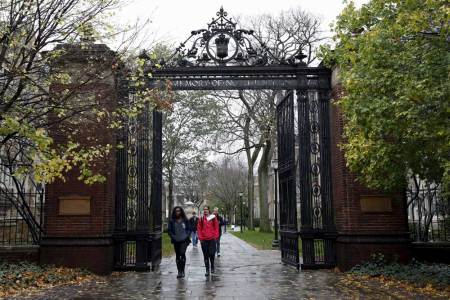Gender Discrimination More Common at Christian Colleges, Sexual Assault Less Likely: Research

Students who attend Christian colleges are slightly more likely to experience some form of gender-based discrimination than students who attend private colleges and public universities but are less likely to be victims of sexual assault, a new study suggests.
Neil Best, a researcher from the Pennsylvania Christian liberal arts institution Geneva College, has shared results from an extensive research project he conducted last spring to be included in his upcoming dissertation. The research analyzes the prevalence of gender-based discrimination and sexual violence at faith-based campuses.
A total of 6,643 students from 38 colleges across the United States participated in an online survey during the spring 2017 semester.
The respondents were asked whether or not they experienced certain types of sexual harassment — stalking, rape, sexual assault and dating violence — and whether they have been victimized by gender-based discrimination on their campuses.
The sample consists of 1,973 respondents from 15 colleges affiliated with the Council for Christian Colleges and Universities, 1,823 from four-year private institutions and 2,847 respondents from four-year public universities or colleges. Over 71 percent of the respondents were female.
"This was the first study that really in a comprehensive way looked at faith-based institutions as a unique climate," Best told The Christian Post on Wednesday.
According to the data, 79 percent of CCCU students said they have experienced some form of gender-based discrimination. This suggests that gender-based discrimination is an experience had by nearly eight out of 10 students on CCCU campuses.
By comparison, 75 percent of respondents from four-year private schools and 72 percent from four-year public colleges said they also experienced gender-based discrimination.
"Students who reported being a victim of gender-based discrimination were twice as likely to report being a victim of sexual assault. There is a clear connection in the research between the two," Best said. "I think that is something that when we think about preventing sexual assault, part of the strategy should be preventing gender-based discrimination."
The data also found that faculty members at CCCU institutions were more likely to say they were victims of gender-based discrimination.
Forty percent of CCCU faculty members reported gender-based discrimination, while only 31 percent of faculty members at public colleges and 34 percent of faculty at private colleges said the same.
"We really need to examine the places, specifically within in the Christian context, where there might continue to be discrimination based on gender and how we can eliminate those," Best explained. "How can we have conversations about gender roles in a way that creates a safe environment for our students?"
Best's data also shows that students at private colleges and public universities were nearly twice as likely as CCCU students to say that they had experienced rape.
Just 4 percent of respondents from CCCU schools said that they had experienced some form of rape, while 9 percent of students from private colleges and 11 percent of students from public universities said the same.
Fifteen percent of CCCU respondents reported having been victimized by some form of sexual assault, while 27 percent of respondents from private schools and 21 percent of students at public universities said the same.
"[Sexual assault] is less common in the CCCU and there is something different happening at the CCCU," Best said. "I think we need to continue asking tough questions and exploring the topic. We just need to continue building on that research."
Thirteen percent of CCCU respondents said that they were victimized by some form of dating violence. By comparison, 20 percent of respondents from private colleges and 18 percent of respondents from public institutions also experienced dating violence.
The data also indicates that stalking is a bit of a problem on CCCU campuses.
Twenty-eight percent of CCCU respondents said that they were stalked in some form, while 27 percent of public school students and 33 percent of private school students said the same.
Best told CP that 96 percent of the students in his survey who reported being a victim of sexual assault also reported an additional form of sexual violence.
"There is this constellation of violence that seems to exist where we don't see victims in isolation that are just victims of sexual assault," Best said. "They are a victim of multiple forms of sexual violence."





















